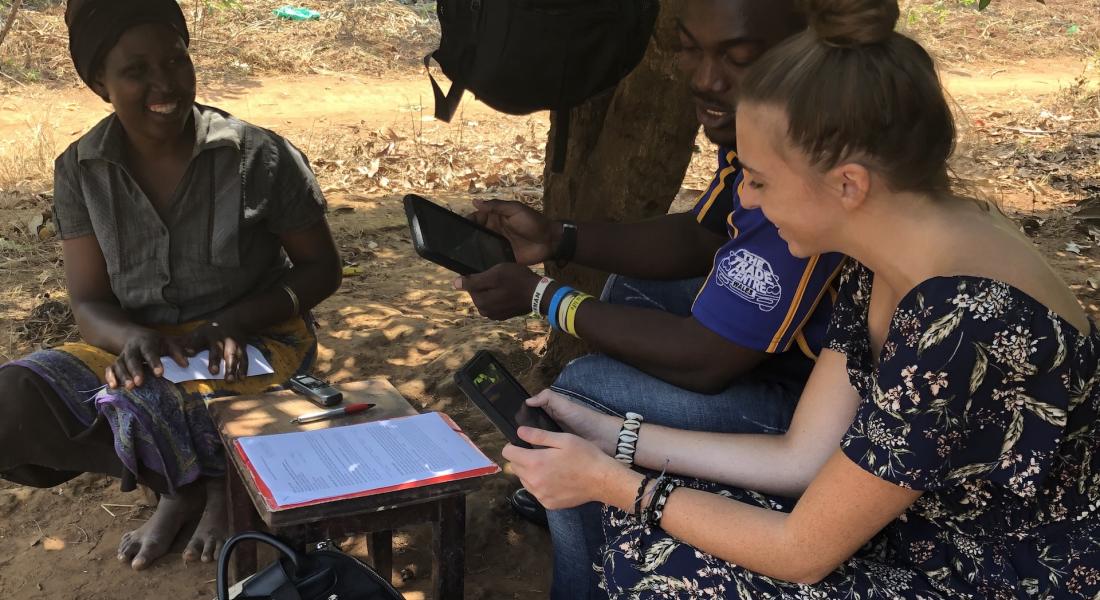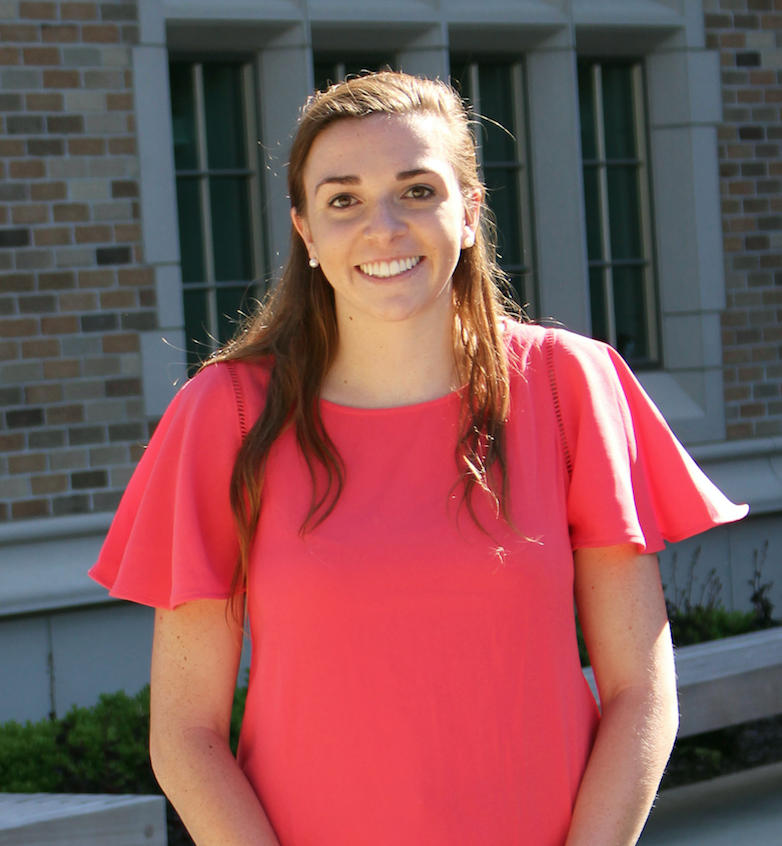
 At Notre Dame, senior and International Development Studies (IDS) minor Emily Pohl found a passion for social change – and put it into action.
At Notre Dame, senior and International Development Studies (IDS) minor Emily Pohl found a passion for social change – and put it into action.
An international economics major with a concentration in French, Pohl worked to combat the cycle of poverty by researching and implementing microfinance initiatives. She is graduating with a portfolio of real-world research experiences, a published journal article, and a position at LEK Consulting in Chicago.
And it was her Arts and Letters education that empowered her to take action.
“Many of my courses exposed me to global issues that I did not know the true extent or nature of,” she said. “Having the opportunity to learn about and discuss them in class transformed abstract issues into tangible problems with a human face and visible consequences.
“I have come to accept that I do not have the capability to single-handedly address all the issues I am exposed to, but I know that I can at least make a difference in some. Given my passion and my skill set, I have been drawn to financial access and literacy.”
Pohl is chief executive officer of the Jubilee Initiative for Financial Inclusion (JIFFI), a student-led nonprofit organization providing microloans and financial training.
“Microfinance lies at the intersection of business and social change and can be adapted in innumerable ways to meet the financial needs of a particular community or context,” she said. “In particular, I love how microfinance – which is often coupled with financial literacy training – goes beyond charity by empowering individuals to play an active and leading role in ending their own cycle of poverty.”
Analyzing impact
As an undergraduate research assistant in the Wilson Sheehan Lab for Economic Opportunities (LEO), Pohl conducted research on the effectiveness of anti-poverty initiatives like the federal government’s HUD-VASH voucher program to reduce homelessness in veterans.
Working alongside William Evans – a Kellogg Institute faculty fellow, the Keough-Hesburgh Professor of Economics, chair of the Department of Economics, and a LEO co-founder – Pohl helped to demonstrate the program’s impact and publish an article in the American Journal of Public Health.
After spending 14 months poring over data, mapping counties with voucher distributions and homelessness, and running mathematical regressions, the team was thrilled to prove that for every voucher given out, homelessness was reduced by one.
“It was very exciting because we found out that the program has an ideal impact,” said Pohl. “It was incredible to be a part of the research process from beginning to end and to see the results made available to the public. I definitely didn’t expect to be published as an undergraduate.”
Embracing failure
In an introductory course on international development her first year, Pohl was instantly intrigued by the combination of business and innovation – and its ability to change lives.
“I used to feel discouraged and frustrated when I would learn about heart-wrenching, shocking issues and felt a sense of complicity in not taking some sort of action,” she said. “My IDS courses, in particular, helped bridge this gap in learning and action by challenging us to apply what we were learning to solve concrete problems – through advising real development organizations on how to rethink or implement certain objectives or going into the field for a summer to conduct hands-on research for our capstone projects.”
Along the way, Pohl learned that failure is a necessary component in the process.
In one of her favorite classes, International Development and Design Thinking, Steve Reifenberg, director of the IDS minor and senior strategic advisor for the Kellogg Institute, where he is also a faculty fellow, designed activities to teach students how to expect and bounce back from failure and how to tolerate discomfort.
“Learning to embrace failure helped me reframe it as a stepping stone to driving change,” she said. “That, in turn, has helped me adopt more of an experimental, open mindset when it comes to trying new things – like immediately prototyping and testing new ideas in JIFFI and being able to receive and react to feedback quickly, rather than trying to unrealistically map out all the possible outcomes.”
Unexpected connections
During a semester abroad in Senegal, Pohl expanded her research to Africa, exploring how to feasibly implement short-term microloans in that context.
She spoke Wolof, a dialect she picked up, in order to talk with local residents about how religion influences financial preferences. In Islam, paying or receiving interest on loans is forbidden, which leads many Muslims to forgo loans from traditional lending institutions. Pohl wanted to examine whether an Islamic microfinance option could help bridge the gap in financial access.
The topic was inspired by her broader liberal arts education and the surprising intersections she has discovered along the way.
“I would never have ended up studying Islamic microfinance if I had not been taking theology courses in conjunction with economics,” she said. “If you had asked me about the overlap between religion and finance prior to my Arts and Letters education, I honestly would have had very little to say.
“But my liberal arts courses always tend to unexpectedly relate to my interests and help further my understanding – whether that’s providing a theological or philosophical challenge to beliefs I hold, broadening how I think about the implications of certain actions, or challenging me to more holistically consider how I measure impact.”
The combination of her academic, research, and international experiences helped Pohl land a position at LEK Consulting in Chicago after graduation. She plans to continue to build her skills in the international development sector for a few years before pursuing a PhD in economics.
Eventually, she hopes to launch a nonprofit dedicated to microfinance in developed regions.
“Microfinance has not become a mechanism for alleviating poverty to the same degree here as it has in developing countries. Unfortunately, we see predatory payday lending dominating the small, short-term lending industry instead,” Pohl said. “One of the things I would love to do in the long run is to help develop a sustainable and ‘franchisable’ microfinance alternative in the US and other developed regions.”





